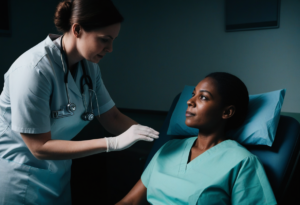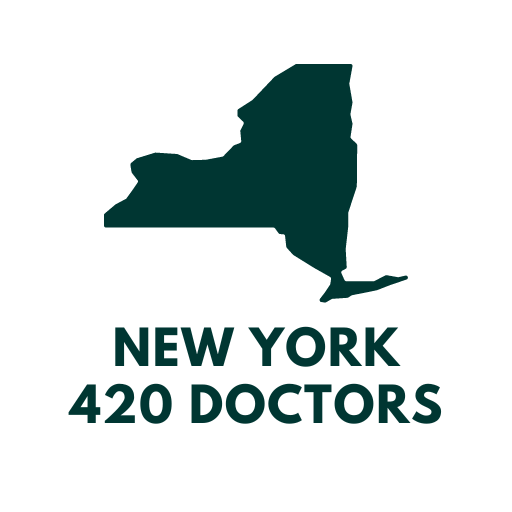Since the establishment of New York’s Medical Marijuana Program, the role of healthcare providers has expanded to include more professionals, particularly nurse practitioners (NPs). This was done to improve access to medical cannabis and enable more patients to seek treatment through the program. Nurse practitioners are now integral to the process, playing a crucial role in certifying patients who qualify for medical marijuana. This shift reflects broader changes in healthcare, where nurse practitioners are assuming more responsibilities in managing patient care, including prescribing controlled substances such as medical cannabis.
In this guide, we’ll delve into the role of nurse practitioners in New York’s medical marijuana certification process, the steps involved for both NPs and patients, and the advantages of having nurse practitioners participate in this growing sector of healthcare.
Overview of Medical Marijuana Certification in New York

In New York, the Medical Marijuana Program allows patients with qualifying conditions to access medical cannabis. To do this, patients must first obtain a certification from a registered healthcare provider. Traditionally, only physicians were permitted to certify patients, but that has changed over time. Now, nurse practitioners and physician assistants (PAs) can also certify patients for medical marijuana use, provided they meet specific training and registration requirements.
This change was introduced to increase accessibility, particularly in underserved areas where patients might not have ready access to physicians. The inclusion of nurse practitioners in the certification process allows more flexibility and wider coverage across the state, improving patient access to medical marijuana, especially in rural or low-income communities.
Licensing and Certification Requirements for Nurse Practitioners

Before nurse practitioners can begin certifying patients for medical marijuana, they must fulfill several requirements set by the New York State Department of Health. The steps include:
1. Licensing: NPs must hold a valid license to practice in New York. This is the basic requirement for any healthcare provider involved in patient care.
2. DEA Registration: NPs must be registered with the Drug Enforcement Administration (DEA) to prescribe controlled substances. This is critical because marijuana, despite being legal for medical use in New York, is still classified as a Schedule I drug under federal law. DEA registration ensures that NPs can prescribe medications that fall under these controlled categories.
3. Completion of Approved Training: Nurse practitioners must complete a New York State Department of Health-approved course on the use of medical marijuana. The course is typically around two to four hours and covers essential topics such as cannabis pharmacology, dosing, potential drug interactions, and best practices for recommending medical marijuana to patients. This training ensures that NPs are well-versed in the therapeutic uses of cannabis and the risks associated with its use.
After completing these steps, NPs are eligible to register with the state as medical marijuana practitioners, enabling them to certify patients for the program.
Certifying Patients for Medical Marijuana: The Role of Nurse Practitioners

Once registered, nurse practitioners can begin certifying patients for medical marijuana. The process is largely the same as when physicians certify patients, but NPs often bring a more holistic approach to patient care. Here’s how the certification process typically works:
1. Initial Consultation: The NP conducts a thorough evaluation of the patient’s medical history and current symptoms. During this consultation, the NP assesses whether the patient has a qualifying condition that can be treated with medical marijuana. These qualifying conditions include, but are not limited to:
•Chronic pain
•Cancer
•HIV/AIDS
•Epilepsy
•Post-Traumatic Stress Disorder (PTSD)
•Multiple sclerosis
•Neuropathies .
If the NP determines that the patient could benefit from medical cannabis, they proceed with issuing a certification.
2. Issuing the Certification: Once the NP approves the patient for medical marijuana, they issue an official certification through the state’s Medical Cannabis Data Management System (MCDMS). The patient receives a temporary certification, which can be used immediately to purchase medical cannabis from licensed dispensaries while waiting for the permanent card to be mailed.
3. Telemedicine Certification: New York allows NPs to certify patients via telemedicine, offering greater convenience for patients who may not be able to attend an in-person consultation. This is particularly useful for patients with mobility issues or those living in rural areas with limited access to healthcare providers . Telemedicine certification follows the same process as in-person consultations, but everything happens online, from the consultation to the certification issuance.
Advantages of Nurse Practitioners in the Medical Marijuana Certification Process

The inclusion of nurse practitioners in the medical marijuana certification process brings several benefits to both patients and the healthcare system:
1. Increased Accessibility: Nurse practitioners are often more readily available than physicians, particularly in underserved areas. This increased availability means more patients can receive the care they need, especially in rural or low-income communities where access to specialized healthcare is limited.
2. Holistic Approach to Care: Nurse practitioners tend to focus on patient-centered care, often spending more time with patients to fully understand their needs. This holistic approach ensures that medical marijuana is integrated into the patient’s overall treatment plan, complementing other therapies they may be receiving. NPs are also trained to provide thorough follow-up care, ensuring that patients are using medical marijuana effectively and safely.
3. Improved Patient-Provider Relationships: Patients often feel more comfortable with nurse practitioners, particularly in primary care settings. NPs are known for their compassionate, accessible care, which helps build stronger patient-provider relationships. This can lead to more effective treatment plans and better health outcomes.
4. Telemedicine Capabilities: With the expansion of telemedicine, NPs can certify patients remotely, making it easier for individuals with disabilities or transportation issues to access medical marijuana treatment. Telemedicine also helps reduce wait times and offers more flexible scheduling options.
Conclusion
Nurse practitioners in New York have become a vital part of the Medical Marijuana Program, significantly improving access to medical cannabis for patients with qualifying conditions. By completing specialized training and registering with the state, NPs can certify patients, provide holistic care, and offer telemedicine options, enhancing the flexibility and convenience of the certification process. Their role ensures that patients across New York, especially those in underserved areas, can more easily access the medical cannabis they need to manage chronic conditions.

